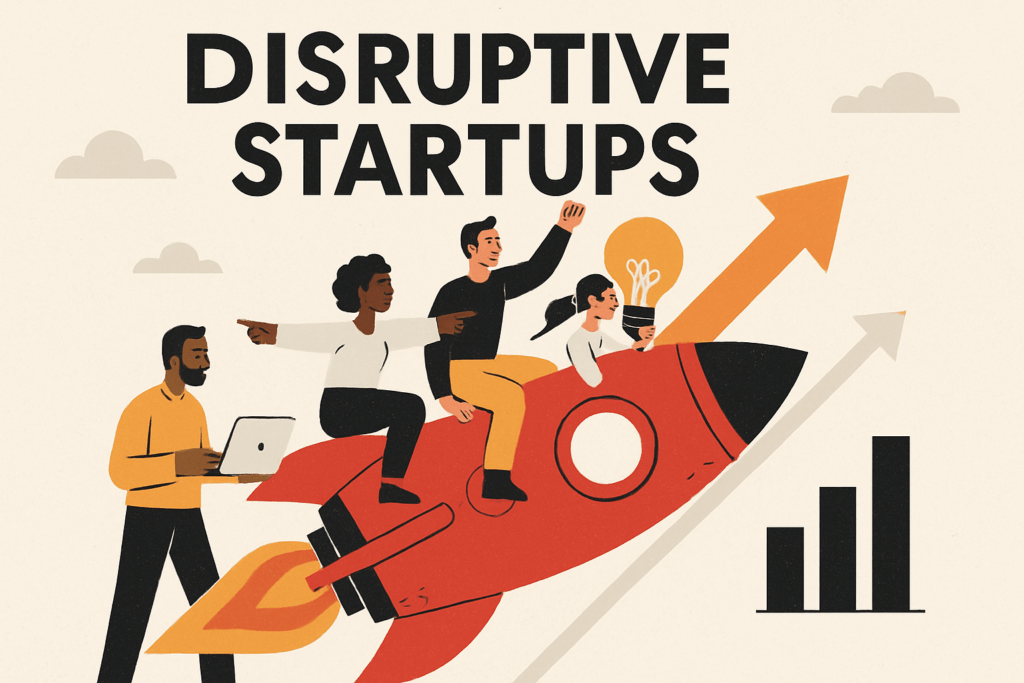How Startups Turned Challenges into Opportunities: The Game of Adaptation
- Short intro on the startup rollercoaster—failures and tough calls aren't the end, they're the reset button.
- Main keyword: overcoming startup challenges.
- Promise: real stories, quick takeaways, and inspiration to pivot wisely.
By managing their fortunes wisely and with a sense of purpose, winners can ensure that they not only secure their own futures but also contribute positively to the world around them, shaping a meaningful and lasting legacy.
The Big Wall: Common Obstacles Every Startup Faces
Let’s be blunt: the startup life isn’t just pitch decks and launch parties. Most days, it feels more like firefighting than forward progress. The list of hurdles is long and, frankly, reads like a startup bingo card:
- Funding nightmares—burn rate’s too high, investors suddenly ghost you, or your next round just got rerouted to your competitor.
- Market mismatch—you built a product people politely nod at but don’t actually want, or your timing’s flat-out wrong.
- Tech headaches—from buggy MVPs to outgrowing your stack at the worst possible moment, the tool that was “perfect” becomes a roadblock in disguise.
- Scaling pains—what worked for 10 customers breaks for 1,000; what felt lean now just seems threadbare.
Don’t believe it’s that rough? According to CB Insights, a whopping 70% of tech startups fail—most often because they either ran out of money or nobody wanted what they built. That’s not doomsaying. It’s reality-check territory.
But here’s the rub: every one of these “challenges” can turn into opportunities. Funding woes push founders to bootstrap smarter and be scrappier. A product flop could force you out of your echo chamber and into direct customer conversations. Scaling stumbles teach you what’s truly core to your business. The obstacles are relentless, but that’s the game—turning each brick wall into a launchpad, and learning to spot the challenges to opportunities pivot before it’s too late.
When Everything Changed: Pivoting at the Crucial Moment
In startup-speak, to “pivot” is to drop your old map and draw a new one fast—changing your product, business model, or target market, sometimes all at once. It's scary. But sometimes, staying the course is the worst choice.
Take the story of Slack. It began life as a gaming company called Tiny Speck. Their big game…flopped. But the internal messaging tool the team built for themselves? It showed promise. Instead of clinging to their original vision, they flipped the script, ditched the game, and turned that side tool into their main business. The result: Slack, the team chat app used by millions.
That’s pivoting success in action. It’s not about surrendering; it’s about listening hard to what’s not working and channeling your energy into what’s connecting. In the world of startups, a well-timed pivot isn’t just a survival tactic—it’s often the first real taste of becoming the business you’re meant to be.
Adapt or Fade: How Startups Rethink Their Business Models
Adapting business models isn’t just startup-speak—it’s the lifeline for staying relevant. In the wild world of launching a company, sticking to the first draft of your business plan is usually a fast track to failure. The ones who last are the ones who keep reworking their playbook whenever the market throws a curveball.
Take the classic pricing pivot. When Buffer started, they offered a single plan. Sales plateaued. Instead of panicking, they introduced a freemium model—basic for free, pay for extras. That shift unlocked a wave of new users, and eventually, a flow of paying customers. Switching up how you charge, or who you charge, is often the first lever to pull when growth stalls.
But adapting business models doesn’t always mean small tweaks. Sometimes it’s about flipping the script entirely. Slack began life as an internal communication tool developed by a game studio. When the game tanked, they realized the tool itself was the real value. They dead-ended the original business and doubled down on what actually worked. That’s not just a pivot—that’s full-on adaptation.
Other startups play with partnerships. Instead of going solo, teaming up with a bigger player or even an unlikely ally can open doors you didn’t know existed. For instance, DoorDash started as a food delivery platform for students before expanding by collaborating with local restaurants, giving both sides a win.
Bottom line: Adapting business models isn’t about keeping up with fads; it’s about survival—and, for those who get it right, it’s about serious growth. The rule is simple: evolve or get left behind.
Inside Track: Real Profiles of Startups that Overcame
You can read the full lineup of lightning-fast risers here. But if you want a taste of what overcoming startup challenges looks like up close, these bite-sized profiles bring it home:
1. Notion: The Do-Over That Worked
Notion, now a juggernaut in all-things-productivity, nearly crashed in its early days. The problem? Their first version was clunky, slow—and a flop. Instead of walking away, the founders scrapped the original code and rebuilt the entire product from scratch. Brutal? Yes. Smart? Also yes. That full reboot is what made Notion fly, and it’s why they’re now synonymous with modern, customizable workspaces.
2. Aircall: Rethinking the Whole Playbook
French startup Aircall started as a basic phone service for small businesses. Trouble was, the market was crowded, and their offering blended in. The turning point? They stopped selling a “product” and started selling “a platform.” By opening up to integrations and letting other companies build on top, Aircall turned a saturated field into fresh territory—and earned serious growth.
3. ClassPass: From Failing App to Fitness Juggernaut
ClassPass began as a search engine for local dance classes. No one was biting. With time running out, they overhauled the whole approach—offering a subscription for unlimited classes instead. That pivot tripled sign-ups almost overnight, and turned them into a household name among fitness buffs.
For every headline-grabbing success, there’s a gritty backstory full of resets and sharp left turns. If you’re feeling jammed, remember: their game-changing moves started right where most people would have thrown in the towel.
Lessons from the Trenches
Every startup that made it has a war story—or ten—about tough calls and hard pivots. Strip it down, and four big moves kept them on track:
Listen hard, act fast: The market will tell you what’s working and what isn’t, often brutally. Startups that pay attention and react quickly grab windows of opportunity that slower teams miss. When in doubt, over-communicate with your users and team.
Lean into feedback: Ego kills, especially in a new business. The best founders hunt down criticism and welcome it. Sometimes a tough conversation or a blunt customer review is the catalyst for your next big win.
Don’t fear changing course: It’s not failure to shift direction—it’s strategy. The startups that last aren’t loyal to their first idea; they’re loyal to making something work. If the data says change, don’t freeze—move.
Double-down on core strength: When the pressure’s on, cut the extras. Focus hard on what you do best, the thing that makes you worth betting on. That clarity is what enables comebacks and fresh momentum.
The common thread? Resourcefulness beats resources. If you’re stuck, simplify, listen, adjust—and go again. The opportunity’s still there, just in a form you didn’t expect.
Beyond the Hype: The Ongoing Grind
Let’s be honest: a win doesn’t mean you’re in the clear. Landing a round of funding, nailing product-market fit, or snagging headlines on launch day? Cool, but there’s no cruise control in startup land. What comes next is a string of new puzzles—tough competitors, shifting customer needs, tech to keep up with, and growth targets that get bigger every month.
The startups that last aren’t the ones who got lucky once. They’re the ones with teams who bounce back, tweak plans, chase knowledge, and never buy into the “overnight success” myth. Resilience isn’t some corporate catchphrase; it’s grabbing coffee at midnight, learning from flops, and aiming to get a little bit better tomorrow. It’s never letting today’s big win blind you to tomorrow’s uphill battle.
Complacency is the one competitor you can’t afford to ignore. Keep moving, keep questioning, keep learning—because the grind never slows down, and neither should you.
What Happens After Winning Millions?
Winning a life-changing lottery jackpot is every player’s dream, but few are prepared for what comes next. The sudden influx of wealth can bring excitement, but also a wave of challenges. Here's how winners typically handle their newfound wealth:
Financial Adjustments
Many winners find themselves overwhelmed by financial decisions. Here are some common issues they face:
-
Taxes and Legal Issues
- A substantial portion of winnings often goes to taxes.
- Neglecting tax obligations can lead to serious legal disputes.
-
Investing vs. Spending
- Some winners hire financial advisors to secure their financial future.
- Others spend lavishly, sometimes draining their funds rapidly.
-
Budget Planning
- Without careful budgeting, even vast sums can vanish quickly.
Lifestyle Changes
Winning millions can lead to significant lifestyle alterations:
-
Luxurious Purchases
- Opulent homes, high-end vehicles, and indulgent holidays become immediate possibilities.
-
Social Dynamics
- Long-lost friends and distant relatives may surface, seeking financial help.
-
Privacy and Public Attention
- Winners might deal with media attention and societal scrutiny, prompting some to live inconspicuously.
Some choose a low-profile life to shield themselves from pressures, while others revel in their newfound luxury.
Philanthropy and Legacy
Beyond personal indulgence, many winners use their wealth for broader societal benefits:
-
Charitable Contributions
- Donations to various charities can become a priority.
-
Community Initiatives
- Funding for community projects and educational scholarships is common.
-
Business Investments
- Some winners seed money into ventures that create local jobs.
Not all lottery winners find financial peace; many struggle with managing their funds, leading to eventual bankruptcy. However, those who use their riches wisely often leave a significant, positive mark on the world.
Wrap-up: The Startup Mindset
At the end of the day, the startup game rewards persistence, not just perfection. Every wall you hit—every funding drought, tech glitch, or strategy dead end—isn’t just a test; it’s a can’t-miss chance to get sharper. The standout teams are the ones who keep their eyes open for opportunities hiding inside the mess.
So, don’t flinch when things get tough. Flip the script: pivot hard if you have to, adapt your business model as the world shifts, and show up ready to outlearn yesterday. That’s how overcoming startup challenges turns from a buzzword into something real. Every great startup story is basically this—people who wouldn’t quit, who found the upside hiding in every setback. Now, it’s your move.




